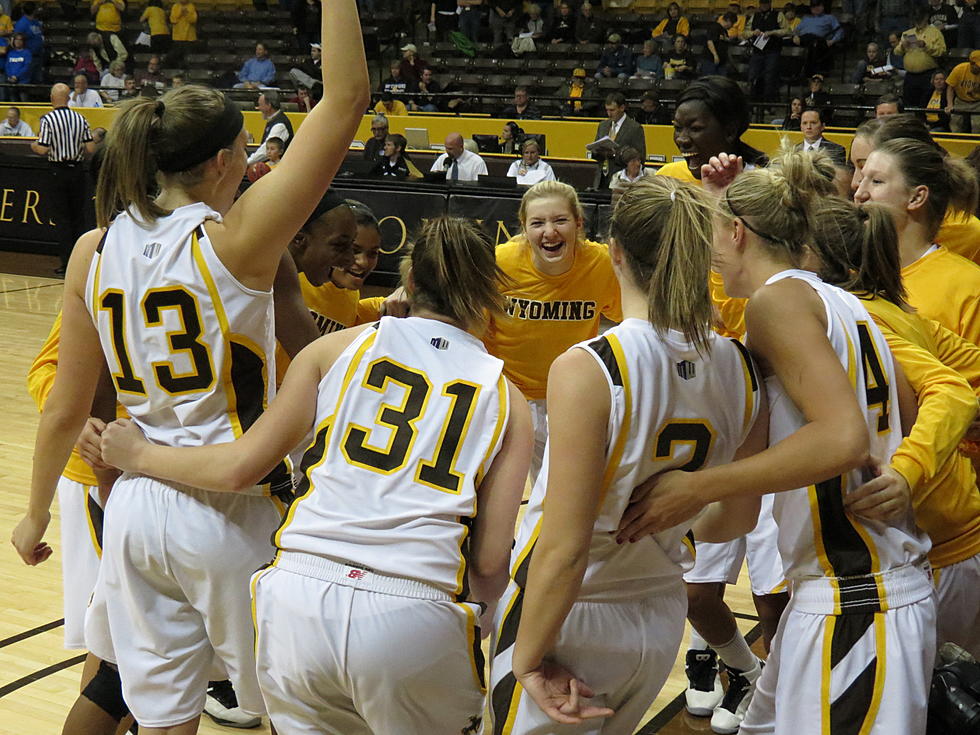
UW Hires Professor to Lead Biodiversity Institute
Wyoming is one of the last great natural places in the world, says the first director of the University of Wyoming’s new Biodiversity Institute.
“We still have huge expanses of land in which wild creatures manage their lives more or less undisturbed,” says Carlos Martinez del Rio, who recently received the appointment to lead UW’s newest academic initiative. “Very few places still have these natural phenomena taking place at such vast scales. We are just beginning to explore the intricate interconnections between the land and its inhabitants, and between the different creatures in the state.”
Martinez del Rio, who’s been an instructor and researcher in UW’s Department of Zoology and Physiology for 19 years, was selected from a field of four finalists following an international search. In his new role, he will focus on interdisciplinary biodiversity research; outreach activities designed to serve the needs of the public, Wyoming agencies and non-governmental organizations; and development of curricular components including student research, field experiences and internships.
“Professor Martinez del Rio brings an international reputation and extraordinary scientific depth to this position,” UW Provost Myron Allen says. “Through his leadership and commitment to reasoned inquiry, UW can enjoy national prominence in a fast-moving field that affects science, society and public policy.”
Creation of a UW Biodiversity Institute was recommended by the President’s Task Force on Biodiversity, which was charged by President Tom Buchanan with developing a plan for a strong interdisciplinary program in the field of biodiversity science. The Berry Biodiversity Conservation Center opened in January 2011, providing UW an opportunity to develop and integrate excellence in several of the university’s areas of distinction, including life and environmental sciences and natural resources. While biodiversity sciences will anchor the UW Biodiversity Institute, human interactions with the natural environment will be a key focus of the institute’s work.
“One of the principles that I hope will guide the building of the institute is profound inclusiveness,” Martinez del Rio says. “We cannot serve and inform only the life sciences. We must extend the insights that come from observing and understanding life’s diversity to the whole university -- indeed, to the whole state. I hope that, in the near future, every student who graduates from the university will have a good understanding of why biodiversity matters and why we must strive to use it wisely and protect it.”
The Biodiversity Institute’s mission extends beyond the university, he says. In partnership with other organizations, departments and colleges on campus, the institute will contribute to educational and outreach programs throughout the state and the region.
“Although our efforts will have primarily a local focus on the state and the Rocky Mountains, if we are successful, the reach of the institute will be global,” he says.
Martinez del Rio came to UW from Princeton University, where he held his first academic position. He received his doctoral degree in zoology from the University of Florida.
As director of UW’s Biodiversity Institute, Martinez del Rio will fill a Wyoming Excellence Chair position. The 2006 Wyoming State Legislature established the Excellence in Higher Education Endowment, which included a $70 million endowment to create UW senior faculty positions for highly distinguished scholars and educators. The legislation creating the endowment states that the endowed positions must expand university instruction and research in disciplines related to economic and social challenges facing Wyoming.
“I am in love with our state,” he says. “I feel captivated by its wonderfully rugged lands where the prairies and deserts meet the mountains. I find the organisms that live in the state endlessly fascinating. Even though I was not born in Wyoming, I feel that I belong here.”
Noting that UW is already well known for its programs in ecology, environmental sciences, natural resources, and environmental and natural resources economics, Martinez del Rio says the Biodiversity Institute provides an opportunity to build on “these considerable existing assets.
“We can do more than just reach a new level of integration and distinction in biodiversity research, education and outreach,” he says. “We can apply these resources in a real way in Wyoming, to more wisely use and more proactively conserve Wyoming’s natural heritage.”
More From KOWB 1290
![Squirrel Creek Fire: One Year Later [PHOTOS]](http://townsquare.media/site/106/files/2013/07/OneYearLater.jpg?w=980&q=75)


![University of Wyoming Student Competing for Miss America [VIDEO]](http://townsquare.media/site/106/files/2013/01/Lexie_Madden.png?w=980&q=75)





